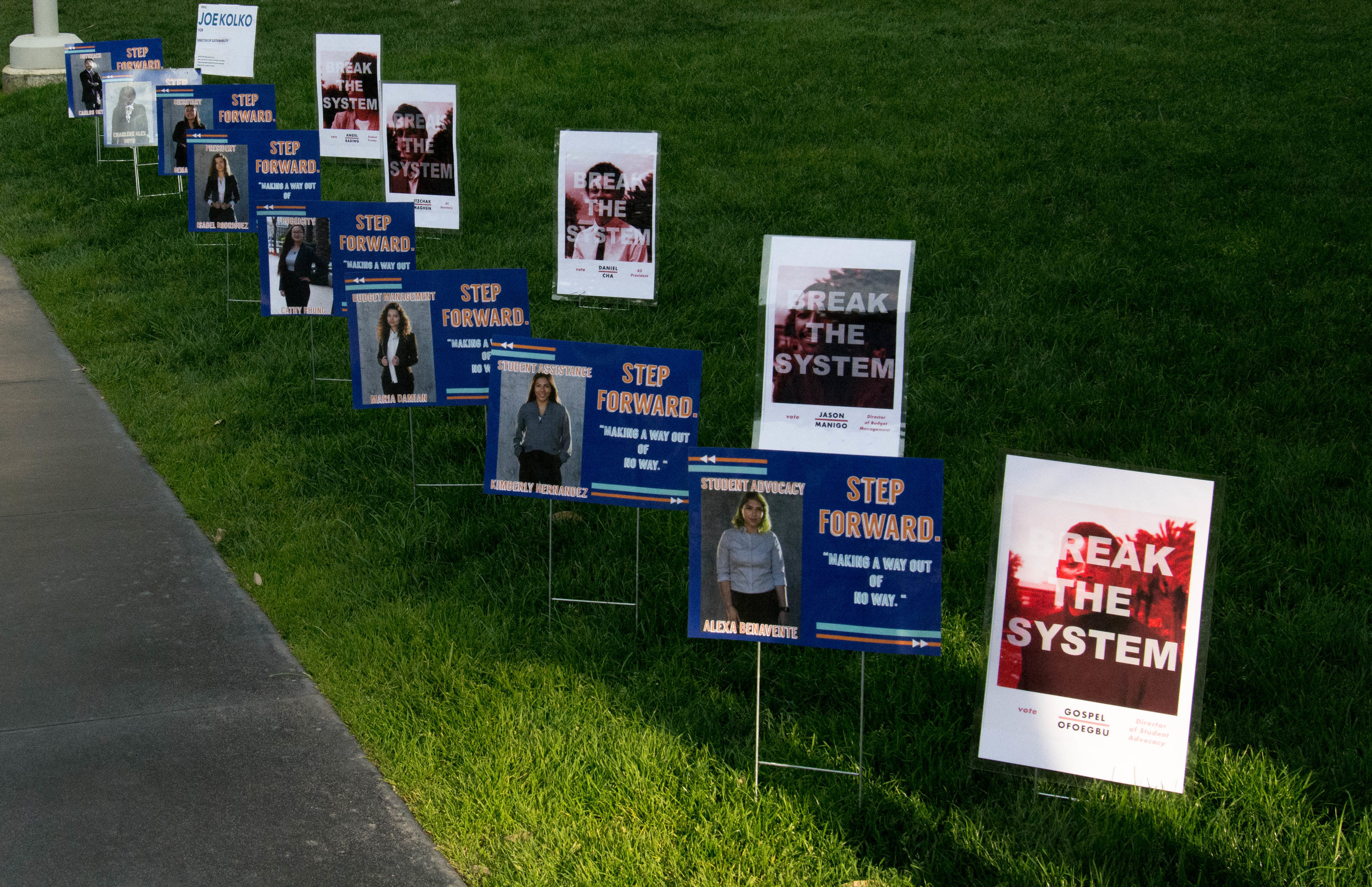A.S. Election Rule Deviation Brings A Disadvantage to Candidates
Last week, the A.S. election committee made an informal deviation to the rules, allowing candidates to distribute campaign materials without an official stamp. But because the committee did not inform all the candidates of this change, some of those running for election face a disadvantage.
Normally, candidates can only use campaign materials that have been stamped by A.S. office staff. According to the 2018 election code, "All literature, flyers, posters, advertisements, and other publicity must be approved and signed off by the Associate Dean of Student Life or the designee prior to posting." This is done in order to assure that the content is appropriate and that no candidate has more than 500 individual pieces of campaign advertisement.
This year, the stamping of each flyer, poster, and business card was not required, with the staff making a cursory check to conclude the materials number under 500 pieces. According to A.S. President Jennifer Chen, the change was made due to staffing shortages in the A.S. Student Life office.
However, to the For the Students slate's Student Trustee candidate, Ben Kolodny, that explanation isn't good enough, because his slate was put at a serious disadvantage. "From the beginning of the week, we had started seeing unstamped business cards, unstamped fliers, and eventually unstamped lawn signs all around the campus," Kolodny said. "And that was already one week into the election, meaning we lost one week of using some of the most valuable tools available because of lack of transparency."
When the issues of staff shortages were brought up, Kolodny's response was dismissive, "Supposedly," he said, "I mean by all means if that's the case, then I would expect the committee to act accordingly, and say 'We're not doing it, we're not going to follow these procedures.'" He expressed dissatisfaction with what he believes has been an insufficient effort by the Election Committee to actively inform candidates about the changes.
When President Chen was asked about this issue, she said, "Our understanding is that when the candidate comes in to get their material approved, we verbally let them know (about the rules change)." Because of this verbal method of informing candidates about material changes to the election code, Kolodny and his slate were "completely in the dark about when and why this happened."
Other slates were not better informed than For The Students either. Angel Rading, Student Trustee candidate for the slate, Transparency, Interdependency, Equity (TIE), said regarding the controversy that she "wasn't told anything about that," and that as far as she knew, "everything needs to go to Nancy Grass, everything needs to be approved by Nancy Grass" for stamping. TIE and other candidates only found out about the changes when they physically went into the A.S. office and asked about their campaign materials. Because of this, the candidates that happened to go in early had an advantage over those that weren't able to make it in until later in the week.
Even if they had wanted to reach out to candidates about the changes, the election committee was unable to contact every candidate due to the fact that, according to Inter-Club Council Chair and election committee head Kyana Shajari, the election committee "had some candidates emails, but [doesn't] have them all." In the course of its coverage on the A.S. election, Corsair staff were made aware of the fact that Dr. Nancy Grass, the A.S. faculty advisor, whose office is in the same location as those of the board members, has access to all of these emails.

